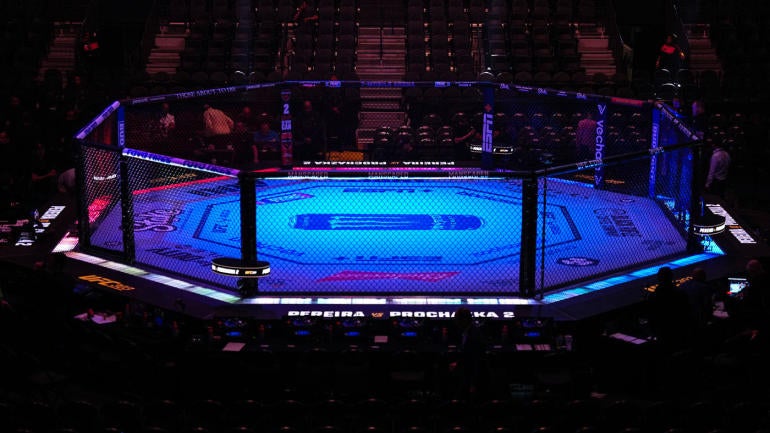
A pair of long-argued rules in mixed martial arts are on their way to being adjusted. On Thursday, the association of boxing commissions and combat sports mixed martial arts committee made significant amendments to the 12-6 elbow and strikes to a grounded opponent rules.
The ABC held its annual conference in Louisville, Kentucky with commission members Andy Foster and Mike Mazzulli proposing approved changes to 12-6 elbows and kicks or knees to grounded opponents. Under the new ruleset, 12-6 elbows will no longer be deemed an illegal strike in MMA.
The strike involves an elbow strike thrown directly downward in a lateral line. The elbow was originally perceived to be more dangerous than an angled elbow strike, but its merits have been heavily disputed, particularly by retired referee John McCarthy who helped shape the original unified rules in 2000.
The most famous example of a 12-6 elbow in MMA involves UFC heavyweight and former light heavyweight champion Jon Jones. Jones struck Matt Hamill with 12-6 elbows that compelled referee Steve Mazzagatti to disqualify Jones in a fight he was dominating in 2009. Many consider Jones the greatest MMA fighter in history and the DQ remains his only loss in 29 fights.
The changes to grounded strikes are less sweeping but integral to how MMA fights play out.
Kicks and knees to the head of grounded opponents have always been illegal under the unified rules; however, the definition of a "grounded" fighter has evolved over the years.
Before this week, the rule stated that "to be grounded, the palm of one hand (a flat palm) must be down, and/or any other body part must be touching the fighting area floor. A single knee, arm, (not fingers) makes the fighter grounded without having to have any other body part in touch with the fighting area floor. At this time, kicks or knees to the head will not be allowed."
The palm-down rule encouraged fighters to place a palm down to avoid absorbing a kick or knee to the head, disincentivizing their opponents from throwing a strike that's legality could change in a moment. The new amendment aims to de-gamify this scenario.
"A fighter shall be considered grounded and may not be legally kneed or kicked to the head when any part of their body other than their hands or feet is in contact with the canvas (ground)," the amended rule reads.
The ABC approved these rules but they may not be universally applied. The Unified MMA rules function as a guideline that each governing body, like a state commission, must choose to adopt.
Athletic commissions operating with different versions of the unified rules have been a recurring headache in MMA, requiring officials to inform fighters which specific iteration of the rules are in effect for each promotion in each region. The difference can be an entirely different ruleset -- such as Colorado allowing for open scoring -- or more complicated subtleties, such as whether a finger or palm identifies a grounded opponent.
It's expected that most U.S. state commissions will adopt the updated Unified MMA rules, hopefully remedying two long-running headaches in MMA.
















